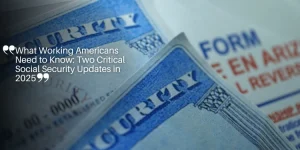Major Health Insurance Updates for June 2025: HSA Limits, PBM Transparency & Compliance Deadlines

IRS Unveils 2026 HSA, HDHP, and EBHRA Contribution Limits
New Benchmarks Set for Health Savings and Employer Contributions
On the cusp of mid-year policy adjustments, the Internal Revenue Service (IRS) has officially released the 2026 contribution limits for Health Savings Accounts (HSAs), High Deductible Health Plans (HDHPs), and Excepted Benefit Health Reimbursement Arrangements (EBHRAs).
These changes are set to influence both employers managing benefit packages and individuals enrolled in high-deductible health insurance plans.
Beginning in 2026:
-
The maximum annual HSA contribution for individuals with self-only coverage will increase to $4,300.
-
For those with family coverage, the contribution cap will rise to $8,750.
-
The minimum annual deductible for HDHPs will see a moderate increase, ensuring alignment with inflation and health care cost trends.
-
Out-of-pocket maximum limits have also been revised upward, reinforcing the need for comprehensive budgeting among policyholders.
-
Meanwhile, the contribution limit for EBHRAs will climb to $2,200.
These arrangements, often used to reimburse employees for out-of-pocket expenses not covered by primary plans, remain exempt from certain ACA (Affordable Care Act) requirements but are still subject to nondiscrimination rules and technical compliance guidelines.
Employers must evaluate the impact of these adjustments on their group health plans and consider whether communication strategies, plan documents, and payroll configurations need to be updated before the new calendar year begins.
Executive Order Shakes Up Drug Pricing and PBM Transparency
Trump Administration Pushes for Reforms Across Medicare and Employer-Sponsored Plans
On April 15, 2025, a sweeping executive order was signed by former President Donald Trump that aims to lower prescription drug prices across public and private healthcare plans.
The action builds upon earlier policy frameworks like the Inflation Reduction Act and the Transparency in Coverage Rule, and is expected to prompt a cascade of changes throughout the pharmacy benefits ecosystem.

Key directives from the executive order include:
-
Initiating a federal evaluation of Pharmacy Benefit Manager (PBM) practices, particularly rebate structures and conflicts of interest.
-
Requiring the Department of Labor to propose ERISA rules that would compel disclosure of PBM compensation arrangements within employer-sponsored group health plans.
-
Expanding price transparency mandates across Medicare, Medicaid, and commercial plans, allowing consumers and plan sponsors greater visibility into true drug costs.
These proposed measures are intended to curb anti-competitive behavior and empower plan sponsors with better tools to negotiate prices. Employers should start preparing for:
-
Updates to cost-reporting frameworks.
-
New obligations under fiduciary duties.
-
Enhanced scrutiny of third-party administrator contracts, especially those involving PBMs.
Although final regulations are pending, proactive HR teams and benefit administrators should closely monitor agency guidance and prepare to adapt plan documentation accordingly.
Prescription Formulary Changes Coming in July 2025: What Self-Funded Groups Should Know
IBX Makes Key Adjustments to Premium Drug Coverage Options
Effective July 1, 2025, Independence Blue Cross (IBX) will implement strategic changes to its Premium Formulary, affecting self-funded group health plans.
The new adjustments favor cost-effective alternatives, aiming to maintain therapeutic effectiveness while managing plan expenses.
Among the most significant changes:
-
Biosimilar substitution: Wezlana will be preferred over the high-cost drug Stelara.
-
Drug exclusions: Sprycel and Pitavastatin will be removed in favor of more affordable therapeutic equivalents.
-
New step therapy protocols and quantity limits will be applied to medications like Motegrity and Eliquis.
All impacted members will be notified in advance. Employers should collaborate with their pharmacy benefits administrator to:
-
Disseminate member communications.
-
Update internal plan documents and summary of benefits.
-
Prepare to respond to employee inquiries regarding coverage transitions.
IBX to Revise Select & Value Formularies in July 2025
Tier Adjustments, Authorisation Updates, and Cost Controls to be Enforced
In addition to Premium Formulary updates, IBX will also revise its Select and Value Formularies, effective July 1, 2025.
The changes were reviewed and approved by the Pharmacy & Therapeutics Committee, signaling a shift toward clinical appropriateness and cost optimization.
Notable upcoming adjustments include:
-
Additions and removals of specific drugs.
-
Tier structure revisions, which may affect patient copay levels.
-
Updates to prior authorization requirements.
-
Modifications in dosage and quantity limits.
Both providers and members will receive early notification to ease the transition. Employers are encouraged to:
-
Schedule internal reviews of benefit alignment.
-
Educate plan members on accessing formulary tools online.
-
Proactively address member concerns during the open enrollment period.
Important Action Required: Update ACH Bank Authorisations to Avoid Delays
New Company Codes for IBX Require Immediate Attention from Group Plan Administrators
As part of an ongoing platform modernization, IBX has introduced new company codes for ACH (Automated Clearing House) payments, which are used to automate premium transactions.
This update impacts both fully insured and self-funded clients, particularly those whose banks require manual authorization for both “push” (credit) and “pull” (debit) payments.
| Action | Details | Urgency |
|---|---|---|
| 🏢 Update Company Names and IDs | Add the new IBX BLUE CROSS company names and IDs based on their line of business | High |
| 💳 Recognize Previous HIGHMARK ID | Continue using the previous HIGHMARK ID for any runout claims or prior cycle payments | Medium |
| 🏦 Approve New ACH Profiles | Contact banking institution immediately to approve new ACH profiles | High |
| ⚡ Swift Action | Employers and brokers are urged to act quickly to prevent missed payments or claim delays | High |
Compliance Focus: Understanding PCORI Fees for Self-Insured Plans and HRAs
IRS Reporting and Fee Deadlines Approach: What Sponsors Need to Know
As part of the Affordable Care Act, all self-insured health plan sponsors, including those offering Health Reimbursement Arrangements (HRAs) and level-funded plans, are required to pay the Patient-Centered Outcomes Research Institute (PCORI) fee annually.
This fee contributes to national health outcomes research and affects a broad array of employers.
Here are the essentials:
-
The PCORI fee applies to plan years ending between October 1, 2012, and September 30, 2029.
-
The reporting and payment must be completed via IRS Form 720 by July 31 of each applicable year.
-
The fee amount is calculated based on the average number of lives covered under the plan during the year.
To remain compliant, employers should:
-
Verify accurate headcounts using one of the IRS-approved calculation methods.
-
Coordinate with benefits administrators or third-party consultants to file Form 720.
-
Prepare documentation for audit readiness and long-term compliance tracking.
Failure to meet reporting obligations may result in penalties, so early action is highly recommended.
Final Thoughts: Navigating the Changing Landscape of Health Benefits in 2025
Preparation and Proactive Compliance Will Be Key to Managing Rising Complexity
As health policy continues to evolve rapidly in 2025, HR professionals, plan sponsors, and benefits consultants are being called upon to remain agile.
From IRS contribution limit changes to executive orders on drug pricing and formulary overhauls, the volume of updates has made compliance management a critical priority.
Key takeaways:
-
Early preparation for 2026 HSA and EBHRA limits will avoid end-of-year surprises.
-
Monitoring PBM reform developments may reveal new fiduciary responsibilities and disclosure mandates.
-
Timely ACH code updates are essential to prevent funding issues.
-
Formulary changes must be communicated clearly to maintain member satisfaction.
-
PCORI fees and IRS filings remain an annual compliance touchstone.
By staying informed and engaging with regulatory updates in real time, employers can protect both their workforce and their bottom line in an increasingly complex benefits environment.







